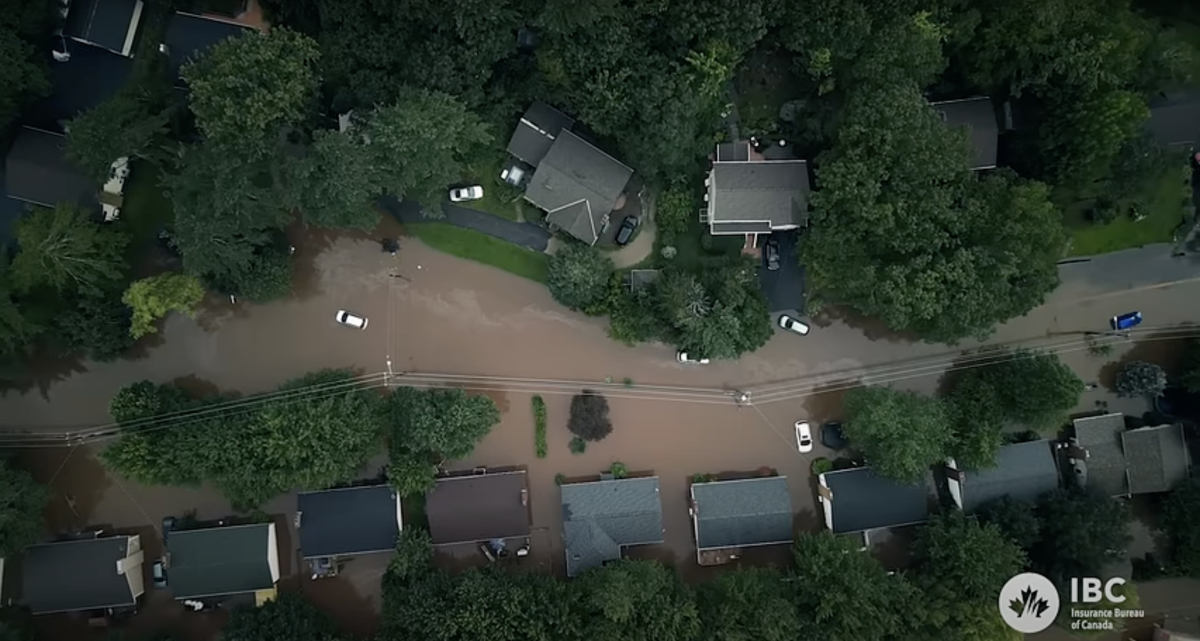Top Stories
Urgent Alert: Canada Faces Soaring Insurance Premiums Amid Crisis

UPDATE: Canadians are facing an unprecedented surge in insurance premiums as the country grapples with devastating climate-related disasters. Just reported, the Insurance Bureau of Canada (IBC) reveals that claims from catastrophic events in the summer of 2024 have reached a staggering $7.1 billion, marking it as the most devastating quarter in Canadian history for insured losses.
As severe weather events escalate, homeowners like Aman Nakra from Aurora, Ontario, are feeling the impact. Nakra was shocked to find his property insurance premium skyrocketing by 57 percent, from $1,400 to $2,200 per year. “I thought it was an error… I don’t live in one of the high-risk areas,” he expressed, highlighting the growing frustration among Canadians facing rising costs.
According to Statistics Canada, property insurance premiums for new homeowners have surged 78 percent since January 2015, now forcing Canadians to pay double the average premium compared to other G7 countries relative to GDP. Notably, despite these soaring costs, insurers reported a combined profit of $4.13 billion in 2024.
The IBC is urgently addressing these alarming trends with a new advertising campaign, spending over $150,000 on social media ads since May 2025. The ads warn of the escalating climate crisis without directly naming it, instead focusing on practical steps for homeowners to “protect yourself and your property.” However, experts like Jason Thistlethwaite from the University of Waterloo argue this might redirect responsibility from the insurance sector to the government and individuals.
With insurance premiums expected to continue rising, Thistlethwaite predicts “double-digit increases” nationwide, warning that homeowners will react with outrage when they see their renewal notices. “They are going to lose their minds,” he stated, emphasizing the unfairness of blanket increases across the country.
In response, the IBC maintains that insurance rates correspond to risk, citing a national increase in severe weather events. While the IBC’s campaign aims to reassure Canadians about insurance support during disasters, the pressure is mounting on Prime Minister Mark Carney’s government to establish a national flood insurance program to protect vulnerable households.
The situation is dire; experts warn that without significant reforms, insurance could become a luxury, leaving many homeowners in high-risk areas unprotected. “We’re getting into this kind of haves and have nots situation,” warned insurance broker Jatin Sharma.
As the government prepares to unveil Budget 2025, which will outline funding for the much-anticipated National Flood Insurance Plan, stakeholders are closely watching for substantial commitments. The current climate adaptation strategy has been criticized for lacking effectiveness, with an audit revealing it was “neither systematic nor comprehensive.”
As Canadians brace for further increases, the conversation around transparency in risk assessment and the financial burden of climate change on consumers is more critical than ever. The IBC has been urged to disclose how risk scores are calculated, as many Canadians remain unaware of their flood zone status. “This is unconscionable,” Thistlethwaite noted.
In a rapidly evolving landscape, Canadians are mobilizing, seeking clarity and fairness in their insurance costs. As the pressure mounts, one thing is clear: the urgent need for a cohesive national response to an escalating crisis is paramount. Stay tuned as these developments unfold and impact millions across Canada.
-

 Politics4 weeks ago
Politics4 weeks agoSecwepemc First Nation Seeks Aboriginal Title Over Kamloops Area
-

 World5 months ago
World5 months agoScientists Unearth Ancient Antarctic Ice to Unlock Climate Secrets
-

 Entertainment5 months ago
Entertainment5 months agoTrump and McCormick to Announce $70 Billion Energy Investments
-

 Science5 months ago
Science5 months agoFour Astronauts Return to Earth After International Space Station Mission
-

 Lifestyle5 months ago
Lifestyle5 months agoTransLink Launches Food Truck Program to Boost Revenue in Vancouver
-

 Technology3 months ago
Technology3 months agoApple Notes Enhances Functionality with Markdown Support in macOS 26
-

 Lifestyle3 months ago
Lifestyle3 months agoManitoba’s Burger Champion Shines Again Amid Dining Innovations
-

 Top Stories2 months ago
Top Stories2 months agoUrgent Update: Fatal Crash on Highway 99 Claims Life of Pitt Meadows Man
-

 Politics4 months ago
Politics4 months agoUkrainian Tennis Star Elina Svitolina Faces Death Threats Online
-

 Sports5 months ago
Sports5 months agoSearch Underway for Missing Hunter Amid Hokkaido Bear Emergency
-

 Politics5 months ago
Politics5 months agoCarney Engages First Nations Leaders at Development Law Summit
-

 Technology5 months ago
Technology5 months agoFrosthaven Launches Early Access on July 31, 2025




















